The Journey of Shadows Upon Time: An Interview with Christopher Ruocchio
- Zach Harney
- Nov 17, 2025
- 7 min read
Updated: 23 hours ago
Reflecting on the Sun Eater Series
1. You started writing your first series in your early 20s and have created an incredibly mature work at such a young age. When did you first start formulatingThe Sun Eater story and what were some of the pivotal moments from inception to getting the first book published?*
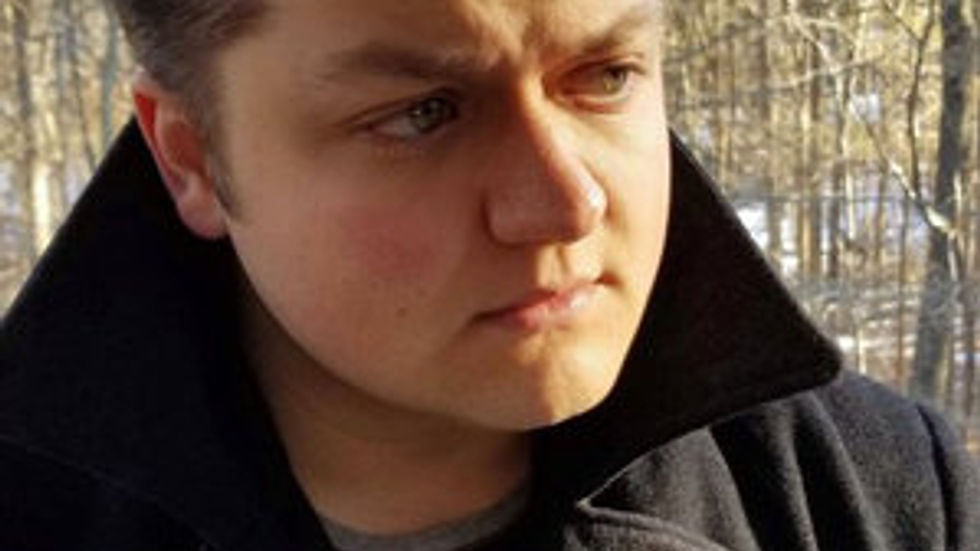
I began writing stories when I was just 8 years old. It was a passion that grew stronger over the years. I was 10 when Eragon was published, and I was thrilled to discover that Christopher Paolini was not much older than I was. This realization made me believe that age was not a barrier to publication. Since then, I have written continuously.
In middle school, I finished a short novel and kept reworking my ideas. I was always focused on the same project. Initially, it was something entirely different, but it gradually evolved into The Sun Eater. Over the years, I have held onto small pieces—character names, scenes—that have transformed significantly.
2. There have been many comparisons of your writing to different authors, such as Frank Herbert, Gene Wolfe, and other modern science fiction and fantasy writers. Who were some of your greatest literary influences early in your life, and how did you navigate the waters of inspiration versus emulation?
Herbert and Wolfe are my two biggest influences in science fiction. However, I owe just as much to Tolkien, as Middle-earth turned me from a casual reader into a serious one. Other media, like films and video games, have also shaped my writing. I grew up playing JRPGs like Baten Kaitos, Lost Odyssey, and the Tales series.
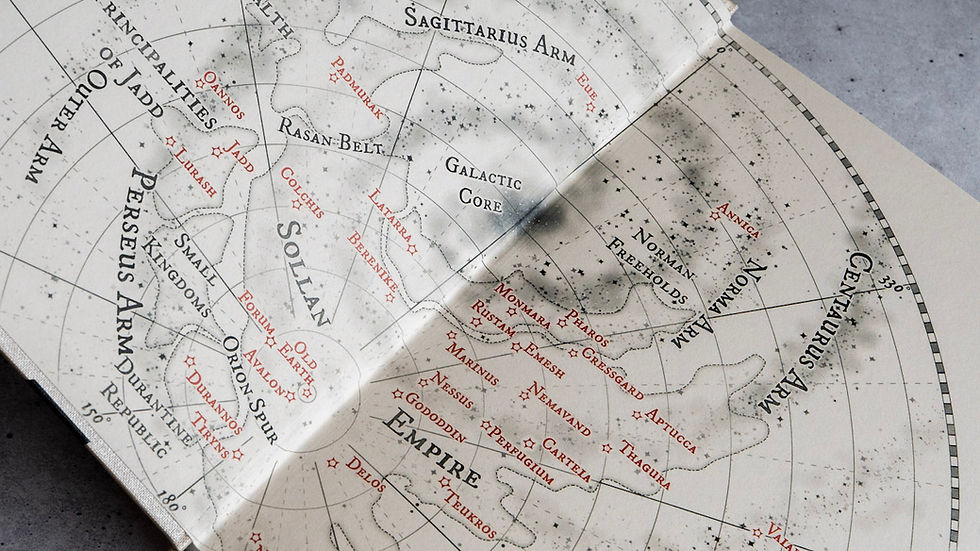
Navigating inspiration versus emulation is tricky. Critics often say I haven't done this well, and I understand their perspective. My intent was to align my text with older, renowned works to set up a thematic argument. For instance, Dune critiques charismatic leaders, but I believe it misses the mark. Heroes are compelling and necessary in our world.
I aimed to bring my work closer to Dune to show that I was not creating a clone but rather a critique. I love Dune, but I think Herbert overlooks the complexity of charisma. It can be dangerous, yet it is also a morally neutral quality.
I worry that I may not have established these parameters clearly enough, especially in the early books. It was a risky endeavor, and if readers feel I borrowed too much, that’s okay.
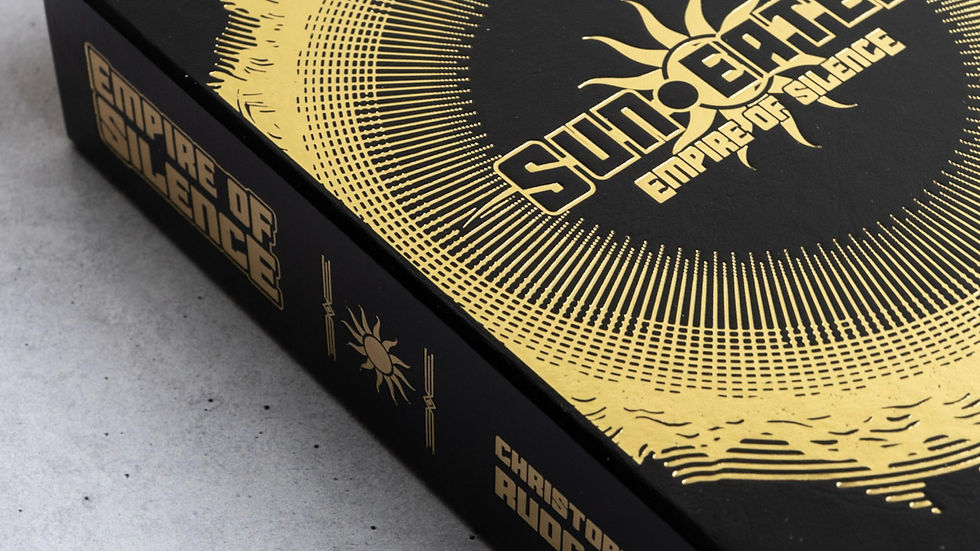
3. I don’t know if I’ve ever read a series that is so expansive, yet so hyper-focused on the progression and transformation of a single individual. Hadrian Marlowe’s narrative voice is intensely intimate. What challenges did you face writing in first-person with a story of this scope?
I never found it challenging. In fact, it was a blessing. Writing in first-person spared me the need to coordinate multiple timelines or decide how much to reveal. It made my life easier.
Of course, battles can be tricky. A broader perspective might have allowed for a more expansive view of conflicts. However, there’s something special about the close perspective we get by following Hadrian so intimately.
4. While the entire series is very intimate, there are also some big questions that drive the narrative around the nature of the universe and our place in it, the role of individuals amidst empires, and the morality of power and memory. What drew you to tackle these ideas in your writing?
These questions seem to be the only ones worth exploring artistically. I never consciously chose to address them; I just naturally gravitated toward these themes. Isn't attempting to answer such questions what art is truly about?
5. There’s a strong undercurrent of classical history and philosophy in your writing, and you even include callbacks to figures we would recognize in our own history. What role did the ancient world and its thinkers play in your storytelling?

I've always been fascinated by the classical and medieval worlds. Perhaps it stems from my early Catholic education. The joke is that every boy is assigned either World War II or the Roman Empire at age 10, and I was assigned Rome.
In The Sun Eater, I wanted to create a future that is deeply connected to our past. Many science fiction works break sharply with history, but I believe that the present is intimately tied to the past. Critics sometimes say, “No one will read Aristotle in 20,000 years!” But we still read him 2,000 years later, which is a good start. Just because I may not be read in 2,000 years doesn’t mean Tolkien won’t be.
I aimed to highlight that Hadrian’s story is our story. His world is our world.
6. As an editor yourself, how do you separate your editorial instincts from your creative impulses when working on your own novels? How has that industry perspective shaped your path as an author?
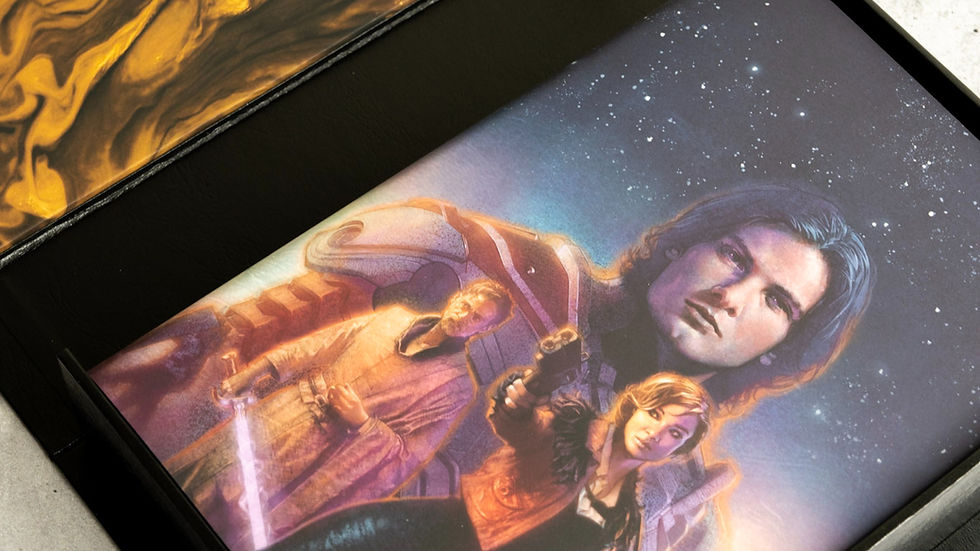
You can’t look back until you’re finished, just like Orpheus. Revising can be a trap for aspiring writers. You can polish a first chapter until it’s worn away and never complete the book.
For me, separating the editor from the writer is easy. I dislike editing. I worked as an editor for seven years, but it was my least favorite part of the job. I usually only make spot corrections until the draft is complete, making notes for later.
While my time in publishing didn’t significantly impact my creative process, it provided insight into the industry. I learned how things work, what to be cautious about in contracts, and more. This knowledge has made me better at the various aspects of my job surrounding writing.
7. If you weren’t writing science fiction, what other genres might you want to explore? Do you have ideas for series outside of the world of SFF?
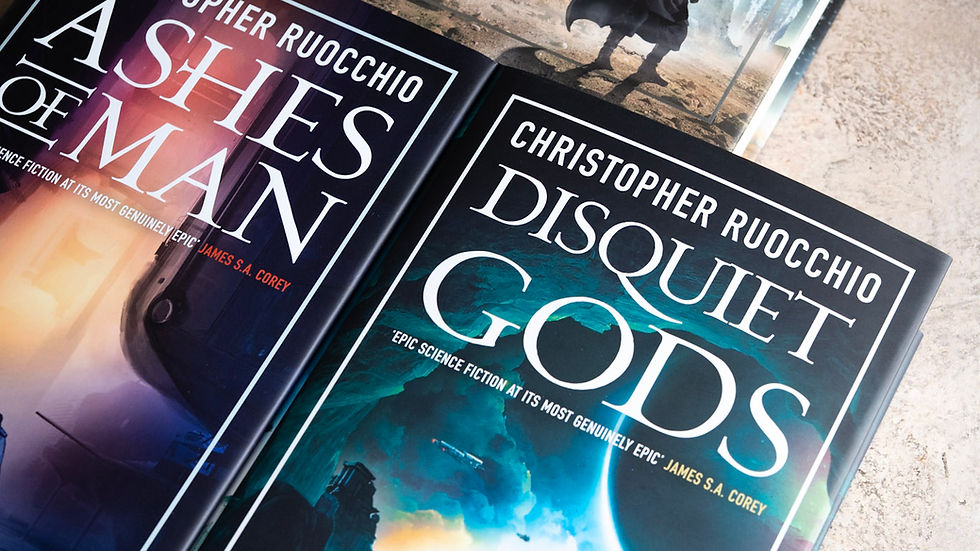
I see myself primarily as a fantasy writer. Some may disagree, but I believe science fiction is merely a branch of fantasy. I have a romantic sensibility that aligns better with the past-focused nature of most fantasy.
The world of The Sun Eater is deeply connected to our history. My goal was to create a sense of continuity in human experience. I want to avoid the abstract post-human settings that I find unreadable.
As for the question, I have no intention of leaving the fantasy genre. Fantasy is the most fundamental literature. It allows us to grapple with the symbolic nature of reality. In fantasy, dragons are literal, not metaphorical. We all face our own dragons in life. Why would I write anything less?
8. You are clearly not afraid to let even beloved characters meet their demise in your stories. Is it hard to let a character go after writing and developing them for so long, or does the story solely drive the character’s fate?

It's not hard for me to kill off characters. What weighs on me is whether I have allowed them to die well. I take character death seriously because it is a serious matter. I often lose sleep over whether I have respected the character in those final moments.
Regarding my attachment to characters, I don’t feel they are any more or less real after their demise. I can always return to tell other stories about them from earlier in their lives. I am aware that I created these characters, so they are not truly gone from my thoughts.
9. Even from the beginning ofThe Sun Eater series, readers have been informed about how the story will end, at least in broad strokes. These moments of foreshadowing continued throughout the narrative, even hinting at certain characters’ futures. What made you choose this storytelling device, and were you afraid it might lessen the tension or stakes?*

For some readers, this approach may lessen tension and stakes, but those readers aren't my focus. Literature has become disposable for many. Most readers likely read a book once and move on. They may read my books once, love them, or not, and that’s fine.
I write for those who will treasure my work, even if that audience is just myself. By revealing aspects of the ending, I may reduce some tension, but I hope it encourages readers to engage more deeply with Hadrian's journey. This approach fosters a different reading experience, akin to how one reads during a re-read, which is often richer. If I can prompt readers to approach my work with that mindset, I consider it a success.
10. We are very close to the release of the final book inThe Sun Eater series, Shadows Upon Time, and readers are excited to discover how this saga concludes. One of the most challenging tasks for an author is to write a worthy ending to a beloved series. As you approached writing the final book, what factors influenced your choices for the ending, and what do you hope readers will feel after finishing the series?*

I want readers to love the ending, but more importantly, I hope they take time to reflect on it. I aim to create an ending that lingers long after the book closes, encouraging readers to revisit Empire of Silence and the beginning of Hadrian’s journey. I want The Sun Eater to become a regular part of readers’ rotations, and I hope they find re-reading it rewarding.
My primary concern was ensuring I didn’t waste readers’ time. Life is short, and books are long, so a book must be worth reading. I was focused on wrapping up story arcs and finishing character tales, but I also considered what to leave open or unfinished. History has no definitive ending—not yet—and neither should a fantasy. However, many things end every day, often more than we can imagine. I wanted to reflect that in the series. I hope I’ve done justice to this task. We’ll find out soon.
11. Are there stories left to tell within the world ofSun Eater, or do you feel the series is complete in your eyes?*
Nothing is ever truly complete. I plan to return, but not for some time.
12. With theSun Eater series completed, do you already have ideas for your next project? Can you give us a glimpse of what we can expect?*
I have outlined the first novel of my new trilogy. I had hoped to deliver it by the end of this year, but fate has delayed me. I can only say that this new trilogy is not connected to Sun Eater in any way. It is fantasy—old-school fantasy. You can expect to see it in AD 2027.
This interview was conducted through a series of communications, and I want to extend my heartfelt thanks to Christopher for his gracious participation. For more information on his books and the latest news, you can follow him on *Instagram or check out his website
Interview by: Zach Harney, co-founder of the Collectible Book Vault
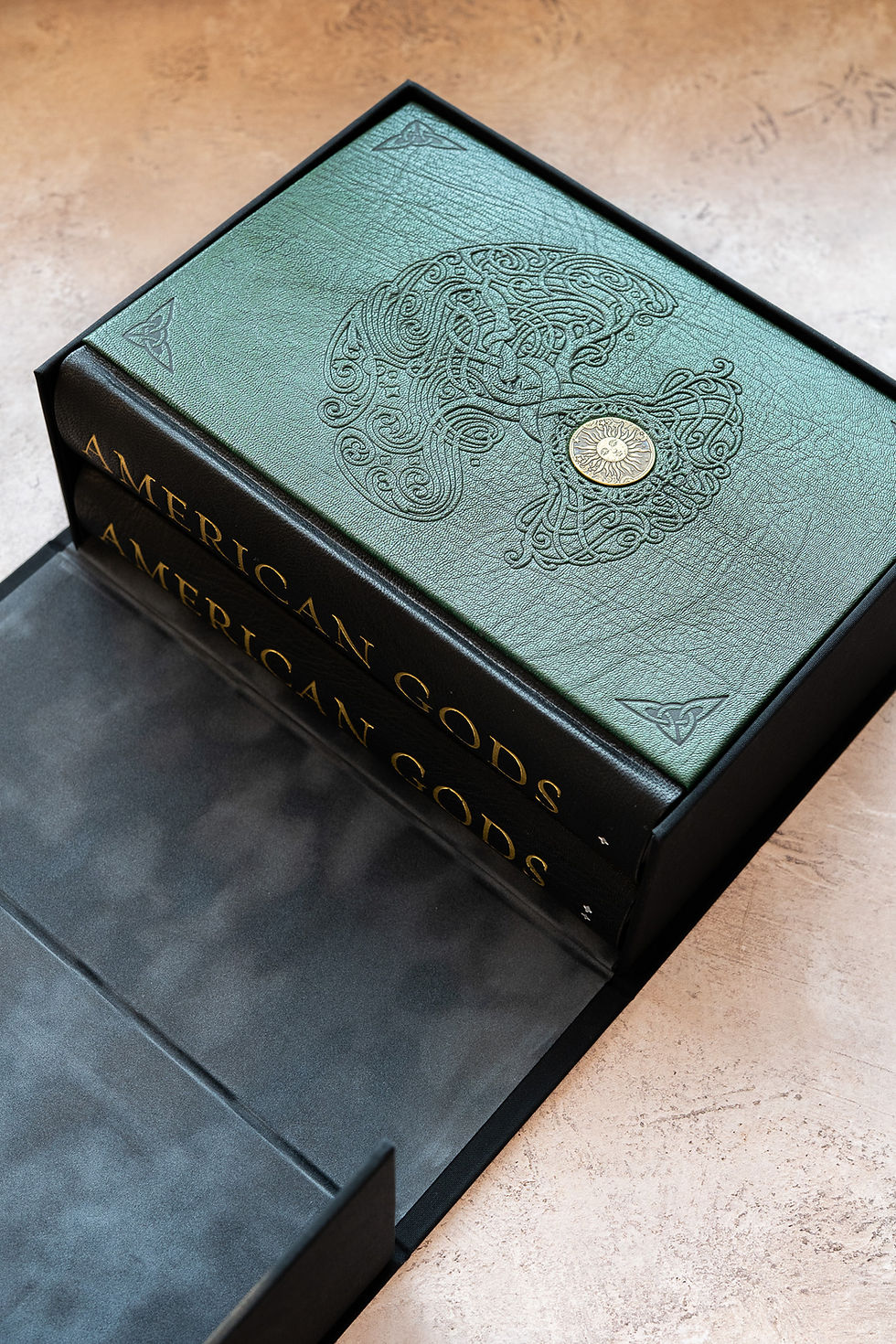


Congrats to our winners of the giveaway:
Empire of Silence Deluxe - @marie.reads.shiny.books
Sun Eater Broadside - Andrew Rothey
Thank you everyone for entering!
Great interview and a beautiful broadside!
Great interview! The broadside looks really good.
Ruocchio is goated! Such an amazing series!
So good to hear from the author in this way!